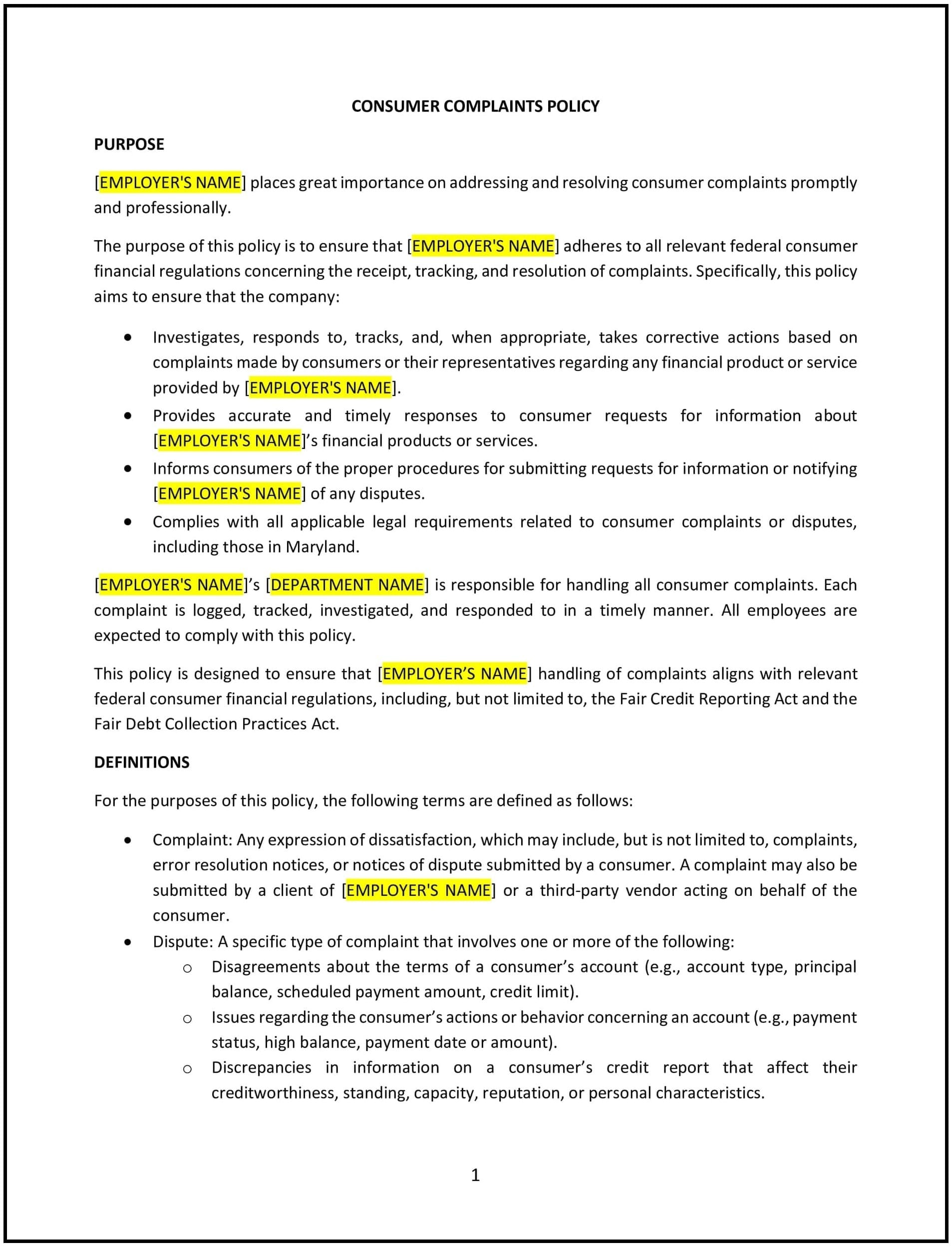Consumer complaints policy (Maryland): Free template
Got contracts to review? While you're here for policies, let Cobrief make contract review effortless—start your free review now.

Customize this template for free
Consumer complaints policy (Maryland)
This consumer complaints policy is designed to help Maryland businesses manage customer feedback effectively by providing clear procedures for receiving, addressing, and resolving complaints. It aims to enhance customer satisfaction while maintaining accountability and fostering trust.
By adopting this policy, Maryland businesses can create a structured approach to handle complaints promptly and transparently, promoting positive relationships with their customers.
How to use this consumer complaints policy (Maryland)
- Define complaint criteria: Clearly specify what qualifies as a consumer complaint, such as issues with products, services, billing, or customer service.
- Provide submission methods: Outline the channels customers can use to submit complaints, such as email, phone, online forms, or in-person visits.
- Acknowledge receipt: Commit to acknowledging complaints within a specific timeframe to reassure customers their concerns are being addressed.
- Establish resolution procedures: Detail the steps for investigating and resolving complaints, including timelines for updates and final outcomes.
- Assign accountability: Identify the roles responsible for handling complaints, such as customer service teams or department managers.
- Track and document: Require thorough documentation of complaints and their resolutions to identify patterns and improve processes.
- Reflect Maryland-specific considerations: Incorporate any state-specific consumer protection laws or practices into the complaint resolution process.
Benefits of using this consumer complaints policy (Maryland)
Implementing this policy offers Maryland businesses several advantages:
- Enhances customer trust: Demonstrates a commitment to resolving customer issues promptly and fairly.
- Improves service quality: Identifies recurring issues and provides insights for process improvements.
- Promotes transparency: Establishes clear expectations for how complaints are handled.
- Encourages customer retention: Resolving complaints effectively strengthens customer loyalty.
- Supports accountability: Assigns responsibility for complaint resolution to designated personnel or teams.
Tips for using this consumer complaints policy (Maryland)
- Communicate the process: Make complaint procedures easily accessible to customers through websites, handbooks, or signage.
- Train staff: Ensure employees are equipped to handle complaints professionally and empathetically.
- Monitor trends: Analyze complaint data to identify common issues and take proactive measures to address them.
- Provide timely updates: Keep customers informed of the status of their complaints to maintain trust.
- Stay updated: Reflect changes in Maryland consumer protection laws or industry standards in the policy.